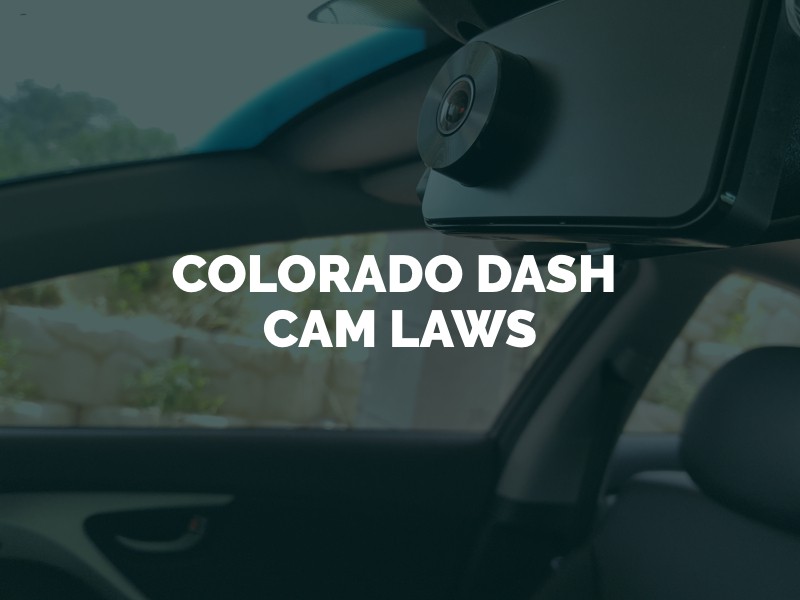Dashboard cameras have become much more popular in the average vehicle as prices for this technology continue to drop. Dash cams can provide important video footage of a car accident – evidence that may help the vehicle owner prove the other driver’s fault. A dash cam could also record things happening inside the cab for the protection of taxi or rideshare drivers. Before you install a dash cam, however, find out if they are legal in Colorado.

Dashboard cameras themselves are not illegal in most states. Instead, it is the positioning of the cameras that could lead to legal trouble for a driver. Most states allow the use of dash cams in vehicles as long as they do not obstruct the driver’s view of the road. Placing a dashboard camera in the windshield in a way that obstructs the driver’s view of the road could lead to a ticket. Take care to position your dash cam in a way that does not breach Colorado’s vehicle and traffic rules.
Although Colorado does not have a state law prohibiting the obstruction of a driver’s view through the windshield, some cities have municipal laws. According to the Denver Code of Ordinances, for example, it is illegal to operate a motor vehicle if something is obstructing the operator’s view through the windshield or any window. You cannot, therefore, have a dashboard camera obscuring your vision if you plan on driving through Denver. It is generally a good idea to position your dash cam in a way that still enables you to see clearly through the windshield. Otherwise, the obstruction may contribute to a car accident.
Some states also make it illegal to record sound within the cab of a vehicle through a dash cam without occupants’ knowledge and permission. Although this is not a law in Colorado, it may be in neighboring states. Research state laws on audio recordings inside cabs before driving into another state with your dash cam, or else disable the audio. Otherwise, the people you record inside your vehicle may have a breach of privacy claim against you.
You should place your dashboard camera out of your line of sight while in the driver’s seat. The best place is in the center of your windshield, a few inches below the very top of the glass (behind the rearview mirror). In this position, the dash cam will pick up a good view of the road without obstructing your vision. You could also place a dash cam in the lowermost right or left corner of your windshield. As long as the camera is not in your eye line when you drive, you should be within the scope of related laws.
A police officer generally cannot take your dash cam in an average traffic stop. They are not illegal in Colorado, and therefore will not give an officer cause to confiscate the device. While you could receive a ticket and fine for a windshield obstruction in Denver, the police cannot take your dash cam in the process. It may be possible, however, for the police to subpoena your dash cam’s footage during a car accident case.
You will not have any option but to surrender dash cam footage to the police if you receive a subpoena. This is a court order that can come with steep penalties if you ignore it, including hefty fines. The police may subpoena your camera if it recorded footage of a car accident. The footage may provide evidence for one of the parties involved. You cannot delete dash cam footage involved in an accident case without committing the crime of interference with a police investigation. Even if the footage proves your fault for a crash, you must hand it over. Work with a Denver car accident attorney for more assistance with Colorado’s dash cam laws in a car accident case.